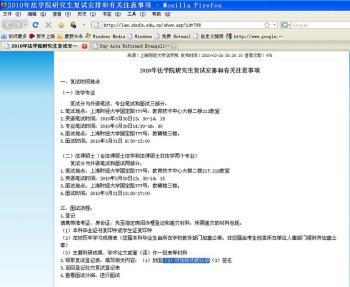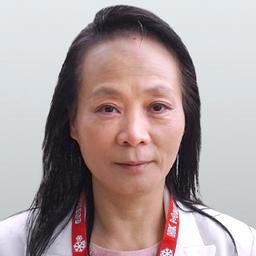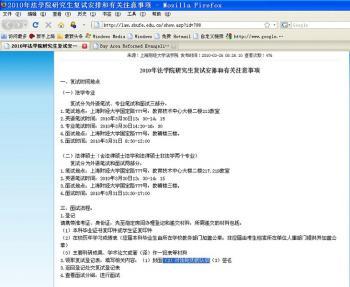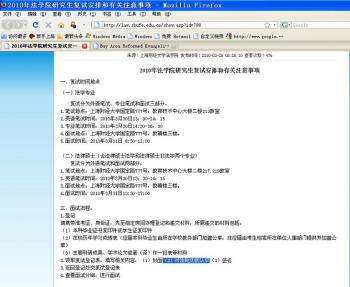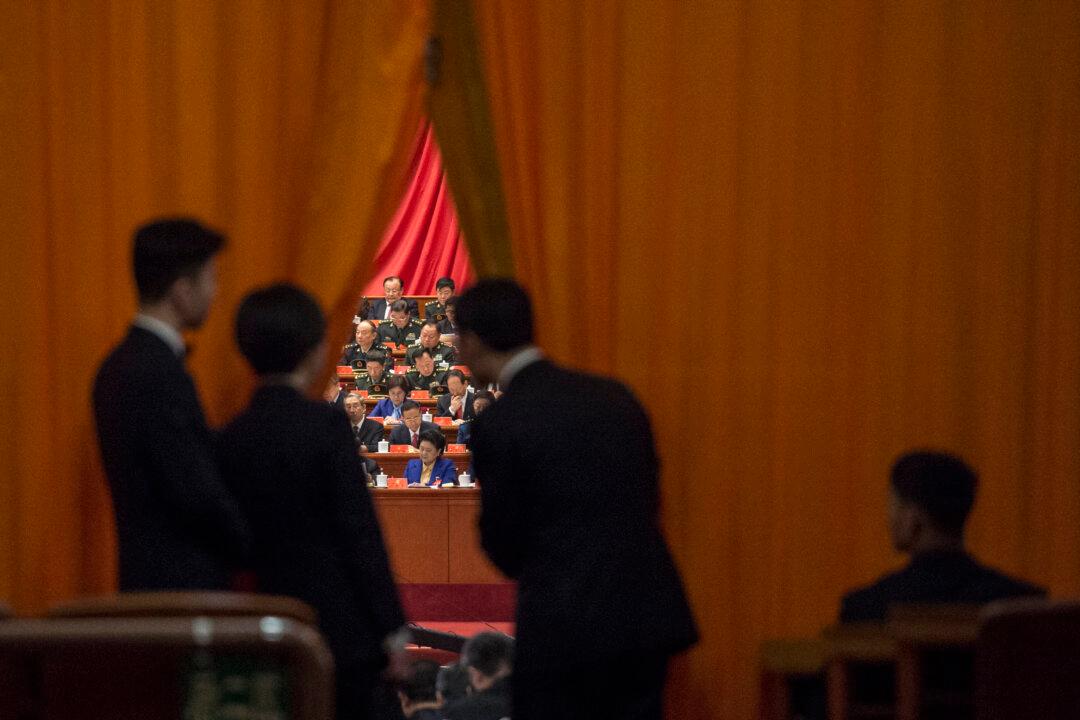Applicants for law school graduate programs at some universities in China are required to state their “views on Falun Gong” on their enrollment applications, according to recent evidence uncovered by The Epoch Times. The ideological criterion, reminiscent of the often violent political education campaigns of the 1950s and 1960s, has been sharply criticized by some Chinese academics and lawyers.
It is now the exam season in China and many hopeful applicants are preparing for entrance exams into graduate schools. According to China Daily, around 1.4 million Chinese took part in the post graduate exams this year, an increase of 13 percent compared to 2009 and the highest recorded in post graduate enrollment since 2001.
Shanghai University of Finance and Economics placed a notice on its Web site regarding “important matters and arrangements on the 2010 law school graduate program entrance exams.” One of these was that applicants have to fill in a section on their “views on Falun Gong” in the entrance examinations application form. The Epoch Times was unable to obtain a response about the official reason for this criterion; the notice was still accessible online at the time of writing.
Included in the entrance exam for Ocean University of China’s political ideology post graduate studies program was the question “what is your opinion on Falun Gong?”
It is now the exam season in China and many hopeful applicants are preparing for entrance exams into graduate schools. According to China Daily, around 1.4 million Chinese took part in the post graduate exams this year, an increase of 13 percent compared to 2009 and the highest recorded in post graduate enrollment since 2001.
Shanghai University of Finance and Economics placed a notice on its Web site regarding “important matters and arrangements on the 2010 law school graduate program entrance exams.” One of these was that applicants have to fill in a section on their “views on Falun Gong” in the entrance examinations application form. The Epoch Times was unable to obtain a response about the official reason for this criterion; the notice was still accessible online at the time of writing.
Included in the entrance exam for Ocean University of China’s political ideology post graduate studies program was the question “what is your opinion on Falun Gong?”
